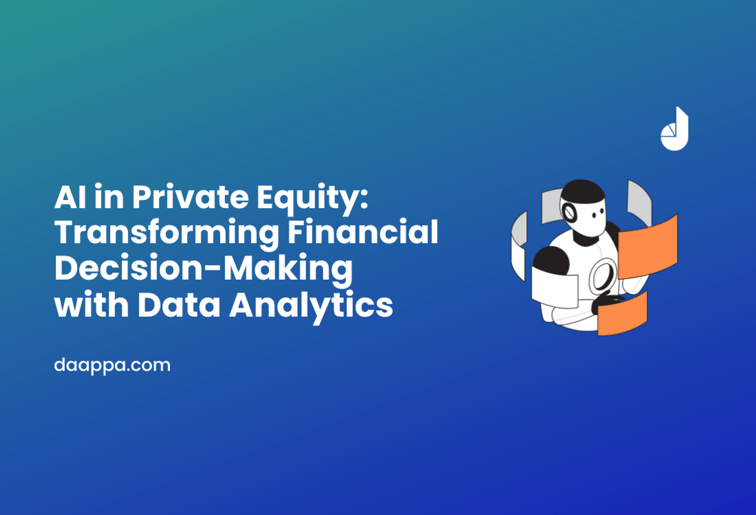How PE Fund Accounting Software Transforms Private Equity Management
In today’s competitive private equity (PE) landscape, precision and performance are inseparable. Fund managers are under mounting pressure to deliver transparency, maintain...
Balanced Integration: Leveraging AI in private equity requires a balanced approach that considers both opportunities and limitations.
Strategic Application: AI should be tactically applied to specific areas like portfolio analysis, data extraction, and risk assessment.
Operational Efficiency: Automating middle and back-office functions through AI can alleviate operational burdens, but challenges remain.
Human Oversight: Human intervention is crucial to mitigate risks associated with AI-generated insights and to maintain control over decision-making.

In an era marked by shrinking operating margins and increasing labour market pressures, the private equity sector is increasingly turning to digital solutions to stay competitive. While the integration of AI and data analytics offers significant potential, particularly in decision-making processes, it also comes with challenges that must be carefully managed. Here’s how AI in private equity is transforming financial decision-making in private equity, and the strategies firms should adopt to effectively integrate AI into their operations.
The excitement around AI, especially in the wake of advancements like large language models (LLMs) such as ChatGPT and Bard, has led many to view AI as the key to overcoming operational challenges in private equity. However, the reality is more nuanced. While AI can indeed enhance decision-making, the fragmented operating models and reliance on disparate software systems in private equity present significant hurdles to its full potential.
Private equity artificial intelligence is becoming a competitive advantage, particularly in areas like portfolio analysis and risk management. However, the complexity of integrating AI across various platforms and the overreliance on spreadsheets make it difficult to achieve seamless automation and data consistency.
To successfully integrate AI in Private Equity, firms should focus on tactical AI-enhanced features that cater to their specific needs. This includes developing advanced analytics for portfolio analysis, enhanced extraction and data sorting tools, risk assessment, valuation tools, and automating tasks related to due diligence, LP requests, and portfolio management.
At daappa, we acknowledge the current limitations of AI in private equity while also recognising its potential. Our AI capabilities are focused on enhancing specific areas such as data analytics and automation of routine tasks. For instance, our Business Intelligence module, Analytics, now includes a chatbot powered by an AI assistant (LLM) that allows users to explore data widgets in plain English. This chatbot is currently in Beta and coming soon, making data-driven insights more accessible and actionable.
AI’s ability to process vast amounts of data quickly and deliver actionable insights is impressive, but it’s not without risks. Out-of-the-box LLMs can understand natural language and provide reasonable answers, but they also risk generating inaccurate or misleading information—what’s often referred to as "hallucinations." This underscores the importance of human oversight in the AI-driven decision-making process,especially when considering how to use AI in financial reporting
Imagine using an AI tool to analyse investment opportunities based on historical data and market trends. While the AI might identify promising opportunities, it might also overlook critical nuances or generate overly optimistic predictions. Without human intervention to validate these insights, the firm could make ill-informed decisions that lead to losses.
For AI to be effectively integrated into private equity operations, firms need to adopt a structured approach that aligns with both operational and client needs. This involves:
Our AI offerings extend beyond analytics. We also provide Extractor AI, a powerful tool that is both AI and language-agnostic. Through the Zanran platform, Extractor AI enables firms to plug in the latest Natural Language Processing (NLP) and Computer Vision deep learning models. This ensures that our clients are not left behind with outdated technology in the rapidly evolving private equity artificial intelligence landscape. This tool is particularly valuable for automating data extraction and analysis tasks, streamlining operations, and enhancing the accuracy of data-driven insights.
Despite the potential of AI in private equity, it’s crucial to maintain a high level of human oversight, especially when acting on insights generated by AI systems. This is particularly important in private equity, where investment decisions can have significant financial implications.
AI’s propensity to generate plausible yet incorrect information means that firms must have robust processes in place to validate AI outputs before making strategic decisions. This includes reviewing the AI’s reasoning, cross-checking data sources, and ensuring that any recommendations align with the firm’s overall strategy and risk appetite.
AI in private equity is undoubtedly transforming financial decision-making in private equity, offering the potential for enhanced insights, greater efficiency, and improved risk management. However, the integration of AI must be approached with caution, balancing its benefits with its limitations. At daappa, we are committed to helping our clients navigate this landscape by providing AI tools that enhance their operations while ensuring that human oversight remains central to the decision-making process.
With solutions like our AI-powered chatbot in Analytics (coming soon) and Extractor AI, private equity firms can leverage cutting-edge technology to streamline operations, gain deeper insights, and maintain a competitive edge. However, as with all powerful tools, the key to success lies in careful integration, continuous human oversight, and a commitment to aligning private equity artificial intelligence capabilities with the firm’s strategic goals.
As the private equity sector continues to evolve, those who can effectively integrate AI into their operations, while maintaining a strong focus on compliance and human judgment, will be well-positioned to thrive in a competitive and data-driven market.

In today’s competitive private equity (PE) landscape, precision and performance are inseparable. Fund managers are under mounting pressure to deliver transparency, maintain...
.png)
Amid rising operating costs and a shortage of experienced talent in Europe’s financial services sector, daappa Ltd and OneNexus Outsourcing Services LLP announce a strategic...

With the introduction of CSSF Circular 24/856 on 1 January 2025, private market fund managers operating in Luxembourg face stricter oversight on NAV calculation errors, investment...